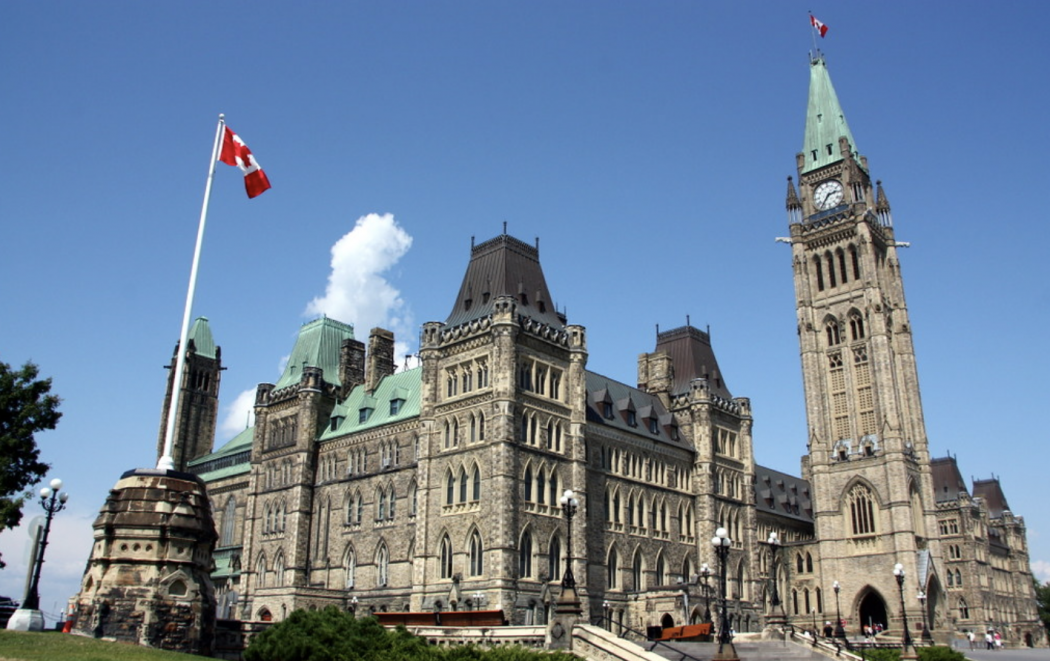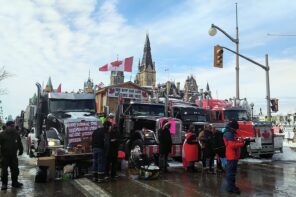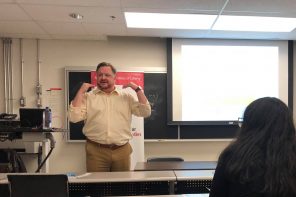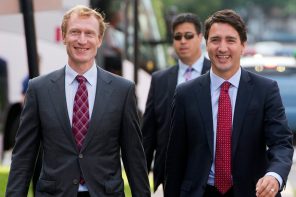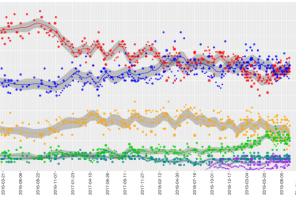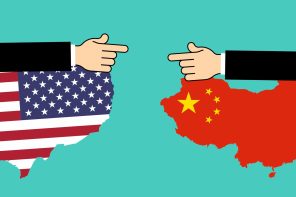On the eve of the Sep. 20 Federal election, the Bull & Bear spoke with the leaders of McGill’s Liberal, Conservative, and NDP student political organizations to discuss several pressing issues on the ballot, including climate change regulation, reconciliation, and housing.
During past elections, McGill’s student political groups have hosted debate watch parties and ‘meet-the candidate’ events, as well as phone banking and door-to-door campaigning. The pandemic has posed new challenges: most events have smaller turnouts and campaigners must take extra precautions, such as masking when going door-to-door.
“Things have shifted a lot online, which isn’t great for campaigning,” explained Matt McLaughlin, co-president of NDP McGill. “Campaigning is about getting out and meeting people face-to-face.”
Changing perspectives
The pandemic has not only changed campaign strategies, but also the nature of the issues that voters prioritize. Nathaniel Saad, the president of the Conservative Student Association of McGill, voiced his optimism about a possible changing tide among the constituents of Montreal, who have historically voted overwhelmingly Liberal.
Citing how the implementation of CERB created difficulties for small business owners, Saad believes that the Liberal government has not met the interests of its constituents over the course of the pandemic, which may result in a shake-up come Monday. “[The conservative party] is getting a lot more positive feedback [from constituents] than from 2019, from what I’ve seen out in the field. I think a lot of people are hoping for some change.”
NDP co-president McLaughlin also believes that the pandemic has encouraged voters to rethink their positions. “The pandemic has really made clear the inequality between the richest and the poorest in this country. We’ve seen that the people who have been most [negatively] affected by this are those with a lower income, and the richest people have seen their fortunes increase.” He explained that economic policies like taxing Canadians with fortunes over $10 million, a foundational policy of the NDP, should then be more appealing to students.
Vote Splitting
With every election, some progressive voters — especially younger voters like students — must decide between voting for the NDP or for the Liberals, the two most powerful left wing parties.
“I actually was a Liberal growing up,” said McLaughlin. “When I got to McGill, I realised that my policy views align more with the NDP. I think there are probably a lot of people like me here at McGill [where] most people grew up in Liberal ridings [and] the NDP wasn’t seen as a viable option.”
“I also came to the conclusion that, if you’re a progressive in the Liberal party, and you vote Liberal, you can fool yourself into thinking you can push your party to the left, or that you can still make the progress that we need on issues like the climate [and] reconciliation, among others,” continued McLaughlin.
Liam Olsen, president of Liberal McGill, encourages a different approach. “I genuinely believe that 90 to 95 per cent of policies, especially if you’re in the left half like me, are shared with the NDP and with the Greens. It’s just a question of, in terms of advancing those policies, choosing your strategy… working from within can be more effective than working from outside.” He also references progressive policies such as the legalization of gay marriage, the legalization of marijuana, and a rethinking of the welfare state through initiatives like UBI that have been pushed by young Liberals.
Strategic voting, or progressives voting Liberal out of a fear that a vote for the NDP might result in a vote for the Conservatives, is not something that McLaughlin promotes. “I don’t want to dismiss those concerns,” clarified McLaughlin. “However, there has been academic literature on vote splitting, and the analysis has shown that strategic voting hasn’t had an impact on election results.” He points to the fact that the Liberals promised electoral reform in 2015 that didn’t get passed, but that would have changed the first-past-the-post system that encourages strategic voting.
In reference to ridings like Hochelaga and Laurier St-Marie, among others, McLaughlin revealed that “there are a few different ridings on the island we think are definitely competitive. [The NDP have] been doing really well in the polls during the campaign itself — we’ve shot up several points — so we think that some of those might be winnable.”
Environmental Policy
If there’s any topic that unites constituents across party lines, it’s the need for environmental reform. Though climate change is considered a priority by all the major parties, they differ in their approaches.
“The environment is a big issue for me,” expressed Saad. “In the past, it may not have seemed like it was a big issue for the [Conservative] party, but it definitely is now.”
“In terms of the environment, we’ve been let down a lot,” he continued. There’s lots of chemicals and sewage that have been dumped into Lac St-Louis and the St-Lawrence, which definitely should not be happening. I go fishing in the lake, I don’t want to be eating fish that are contaminated.” The NDP is also pushing for a law that will protect the rights of the St-Lawrence river.
Federally, the Liberals want everyone to be aligned on the facts of climate change and the drastic changes that need to happen. “The UN and the IPCC tell us very clearly that we need to limit warming to 1.5 degrees Celsius for 2050. The way to do that is to cut global emissions by 45 per cent compared to 2005 levels by 2030. The Greens, the NDP, and the Liberals have a plan that does that. The Conservatives, unfortunately, do not,” said Olsen.
Olsen elaborated on the degree to which the Liberals, Greens, and NDP have similar goals in regards to regulating climate change. “I think there’s a lot of overlap — all three of our parties are on the same baseline. For example, things like an aggressive carbon tax.”
The NDP platform states that they want to enact legislation that will create more powerful climate change regulation, like allocating funding for green infrastructure and transit, which they argue has not been acted on by the Liberals even though it was promised.
These leaders hope that voting-eligible students will utilize their knowledge to make Montreal, and Canada, a place that they can feel proud of, despite their disagreements.
“After the election we want to do a lot more [bipartisan events with other student organizations],” explained Olsen. “Obviously, you get all partisan and you point fingers during the election, but at the end of the day we’re all students who are interested in politics and making people’s lives better.”
“I definitely want people to go out and vote … I wish McGill students would dig in a bit, do their research, and find out which party they align with,” said Saad. “Vote your conscience and exercise your civic duty.”
For more information on how to vote tomorrow, visit
For more information on different candidates, including the Greens and Bloc Québecois, which were not discussed here, visit the following party platforms sites listed below:
Bloc Québecois (French Only)

